Grenada stands out as one of the safest destinations not just in the Caribbean but also as a tropical getaway anywhere in the world.
Although it might not be as famous as some other Caribbean spots such as the Bahamas or Puerto Rico, let us tell you: Grenada has a special charm.
The sweet scent of nutmeg hanging in the air has earned Grenada the title of the Spice Isle, the rainforests and waterfalls feel like magic, the botanical gardens burst with color, underwater sculptures entice art lovers and adventurers alike, and year-round sunshine awaits at the beaches.
But enough about sightseeing—let us learn more about the safety situation of this tropical paradise.
Are you planning a last minute trip to Grenada? We’ve put together all the resources you’ll need for a fun & safe travel:
🛌 Best & Safest Places to Stay in Grenada:
👉 Sandals Grenada – (My resort recommendation for couples)
👉 Royalton Grenada – Key card access, Daily housekeeping, Free WiFi
👉 Silversands Resort Grenada – Beachfront, Room service, Bar
👉 Calabash Hotel – 3 restaurants, Tea/coffee maker in all rooms, Beachfront
⛱️ Fun Activities & Tours in Grenada:
👉 Coastline Explorer – Grenada ATV Adventures
👉 Half-Day Grenada River Tubing Adventure and Annandale Falls
👉 ALL INCLUSIVE Full Day snorkeling & sunset cruise
🚗 Best & Safest Grenada Transportation Services:
👉 Airport Pickup Service – Welcome Pickups
👉 Rent a Car – DiscoverCars
🙏 Stay Safe While Travelling:
👉 Safetywing (for medical insurance)
👉 VisitorsCoverage (for trip insurance)
Is Grenada Safe?
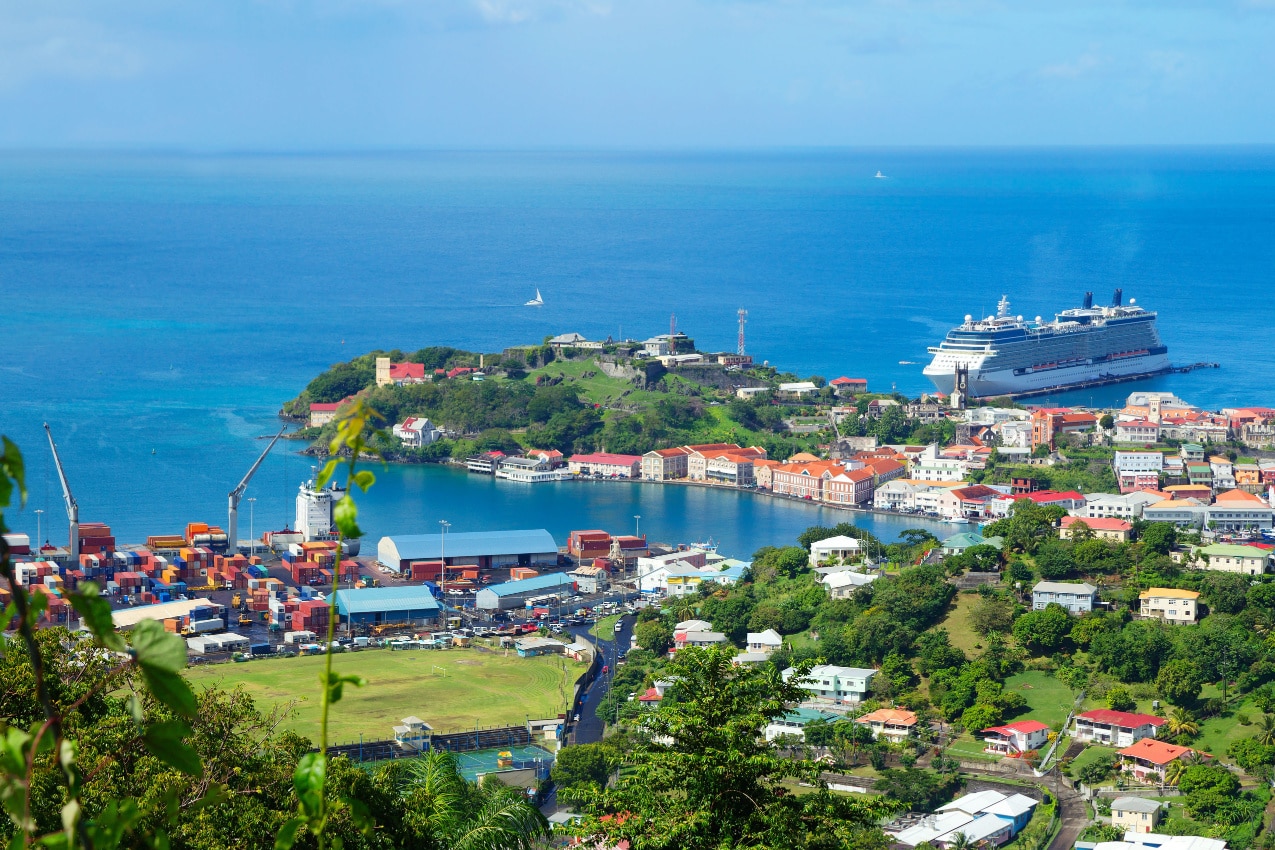
Grenada is a safe island nation with a low crime rate. Tourists are warmly welcomed, as tourism plays a vital role in the country’s economy. While crime does occasionally occur, simple precautions can easily prevent it from happening to you.
Here’s the rundown on Grenada’s safety:
- International travel advisories: Level One, practice normal safety precautions
- Crime rating: Very low crime rating of 20.94
- Most common crimes that affect tourists: Pickpocketing and purse snatching, especially during carnivals, and thefts from yachts
- Public transportation safety: Generally safe, but the timetable of buses isn’t fixed, so they are less reliable than taxis
- Safety walking alone during the day: Very high
- Safety walking alone during the night: High
- Road safety: Some roads are winding and narrow, with speed bumps, potholes, and limited lighting; mountain routes may lead you to blind corners; locals may drive at high speeds; good driving skills and GPS navigation are advised
- Beach safety: Grenada’s beaches are generally safe, but exercise caution regarding riptides; take notice of the safety beach flags
- Tap water: Generally safe to drink, but it may be contaminated after a heavy storm
- Common natural disasters: Hurricanes, earthquakes, tropical storms, landslides, and volcanic activity
- Carbon monoxide poisoning: Rental units may have carbon monoxide detectors installed, but pack a portable one for added caution
- Police presence: 14 police stations and a team of over 940 staff members
- Medical care quality: Hospitals can provide some general treatment, but for serious or specific cases, emergency evacuation may be necessary
Travel Advisory for Grenada
The United States, United Kingdom, Canada, and New Zealand travel advisories categorize Grenada as extremely safe for travel—Level One, which means you need to practice nothing more than normal safety precautions.
They highlight that petty crimes like pickpocketing and purse snatching may occur, especially around big events like Carnival Spicemas in August. Also, be cautious about thefts from yachts along the south coast.
Keep in mind that attitudes toward the LGBT+ community tend to be conservative, and some homosexual acts are illegal in Grenada. Public displays of affection may attract unwanted attention.
Be wary of hitchhikers—authorities advise against stopping for pedestrians, as there’s a possibility of theft.
When heading into the water, be mindful of strong currents. Additionally, stay updated on news about hurricanes, volcanic eruptions, and earthquakes.
A Comprehensive Look at Grenada Crime Rates
Grenada has a very low crime rating of 20.94.
However, according to Ryan Hall, Officer in Charge of the Criminal Investigation Department, the quarterly report for March 2023 in Grenada showed an 8.4% increase in crimes.
Areas experiencing growth in crime include a 1.4% increase in harm offenses and a 6.6% increase in assault offenses.
Property crimes pose a significant challenge in Grenada, with a 21% increase in the same period. Violent crimes are mainly committed by young people, but the good news is that there has been a 20% decrease in Q1 2023 compared to the previous year.
Before you start worrying, remember—tourism plays a crucial role in supporting the local economy, and the government is dedicated to maintaining a safe and welcoming environment for foreign visitors. So maintain normal precautions and you likely won’t get affected by the above-mentioned crimes that have seen an increase.
| Safety Concerns | Crime Rate | Status |
| Overall Crime Level | 14.06 | Very Low |
| Increase in Crime (Past 3 Years) | 46.88 | Moderate |
| Home Break-Ins and Thefts | 32.81 | Low |
| Mugging and Robbery | 21.67 | Low |
| Car Theft | 12.50 | Very Low |
| Theft from Vehicles | 23.33 | Low |
| Personal Attacks | 14.06 | Very Low |
| Verbal Insults | 18.75 | Very Low |
| Racial, Ethnic, Gender, or Religious-Based Attacks | 3.12 | Very Low |
| Drug Use and Dealing | 37.50 | Low |
| Property Crimes (Vandalism and Theft) | 29.69 | Low |
| Violent Crimes (Assault and Armed Robbery) | 23.44 | Low |
| Corruption and Bribery | 18.75 | Very Low |
| Safety Walking Alone in Daylight | 93.75 | Very High |
| Safety Walking Alone at Nighttime | 75 | High |
Source: Numbeo, 2024 data based on 16 contributors.
Police Presence in Grenada
The Royal Grenada Police Force (RGPF) is the backbone of maintaining safety in Grenada, boasting around 14 police stations and a team of over 940 staff members.
You’ll likely spot the police force patrolling the main tourist hotspots, government buildings, public gatherings, and roads. Grenada police officers are friendly and respectful towards tourists, as long as tourists are polite as well.
If you ever find yourself in a situation where you’re stopped by a Grenadian police officer, here’s what to do:
- Don’t question the officer’s authority, though you can ask to see their ID. Be kind, and respectful, and answer all the questions they may have for you
- Try not to be impatient or mention that you have somewhere else to be. Take the time needed to resolve the situation calmly
- Sometimes, humbly admitting that you did commit a violation can go a long way Accepting the officer’s “kind assistance” might just help you get out of a sticky situation
- Ensure that all your paperwork, including your passport, driving license, and vehicle registration, is in order. Having everything ready can make the process smoother
Public Transportation Safety in Grenada
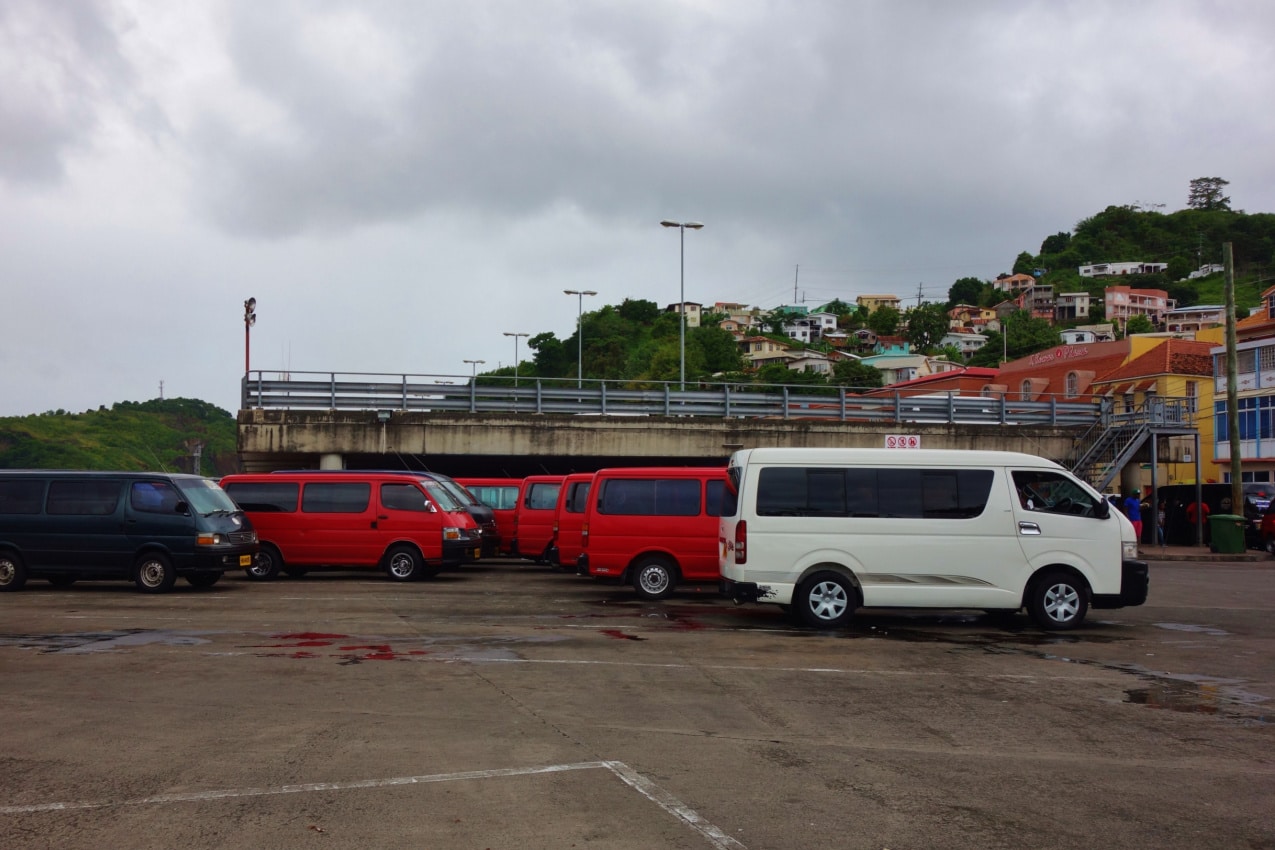
Using public transport in Grenada is generally safe.
Buses run from 6 am to 9 pm from Monday to Saturday, but they have no set timetable—which makes them somewhat less reliable than taxis. While they’re rare, be cautious of pickpockets, and keep your belongings close.
Taxis are a more reliable choice, especially at night. However, confirm the fare with the driver beforehand to avoid scams! A ride from St. George’s to Grand Anse Beach typically costs XCD35 (around $13).
You can also use the colorful water taxis. These boats shuttle passengers along Grenada’s southwest coast for around XCD10 (approximately $4) each way. But before hopping on one, double-check if the taxi has life jackets.
Road Safety in Grenada
Driving around Grenada is generally safe, but not without its challenges.
According to the United Kingdom’s travel advisory, some roads in Grenada may be winding and narrow, so driving expertise will for sure come in handy, both practically and in terms of confidence. Mountain routes may lead you to blind corners, but you can easily dodge them if you use a GPS navigation tool.
More things to be wary of are speed bumps, potholes, and limited lighting on your drive. Plus, some locals may drive at high speeds, and pedestrians often walk on the road—so be patient while driving and avoid displaying any road aggression.
Medical Care Quality in Grenada
Medical care in Grenada is limited. The United Kingdom’s travel advisory shares that the general hospital in Grenada can provide some types of treatment, but for serious cases, emergency evacuation may be necessary.
Here are some of the best hospitals in Grenada:
- General Hospital, Saint George’s
- St. Augustine’s Medical Services, Saint George’s
- Mt. Gay Mental Hospital, Mt. Gay, Saint George’s
- Princess Alice Hospital, Mirabeau, Saint Andrew
- Carriacou Hospital, Hillsborough, Carriacou
Medical treatment in Grenada can be on the pricier side for foreign nationals. It’s highly recommended to have comprehensive travel health insurance that covers the cost of your medical treatment. AXA Assistance USA, Cat 70, and GoReady are solid options but do double-check which hospitals in Grenada they provide coverage for.
Is It Safe to Travel Solo in Grenada?
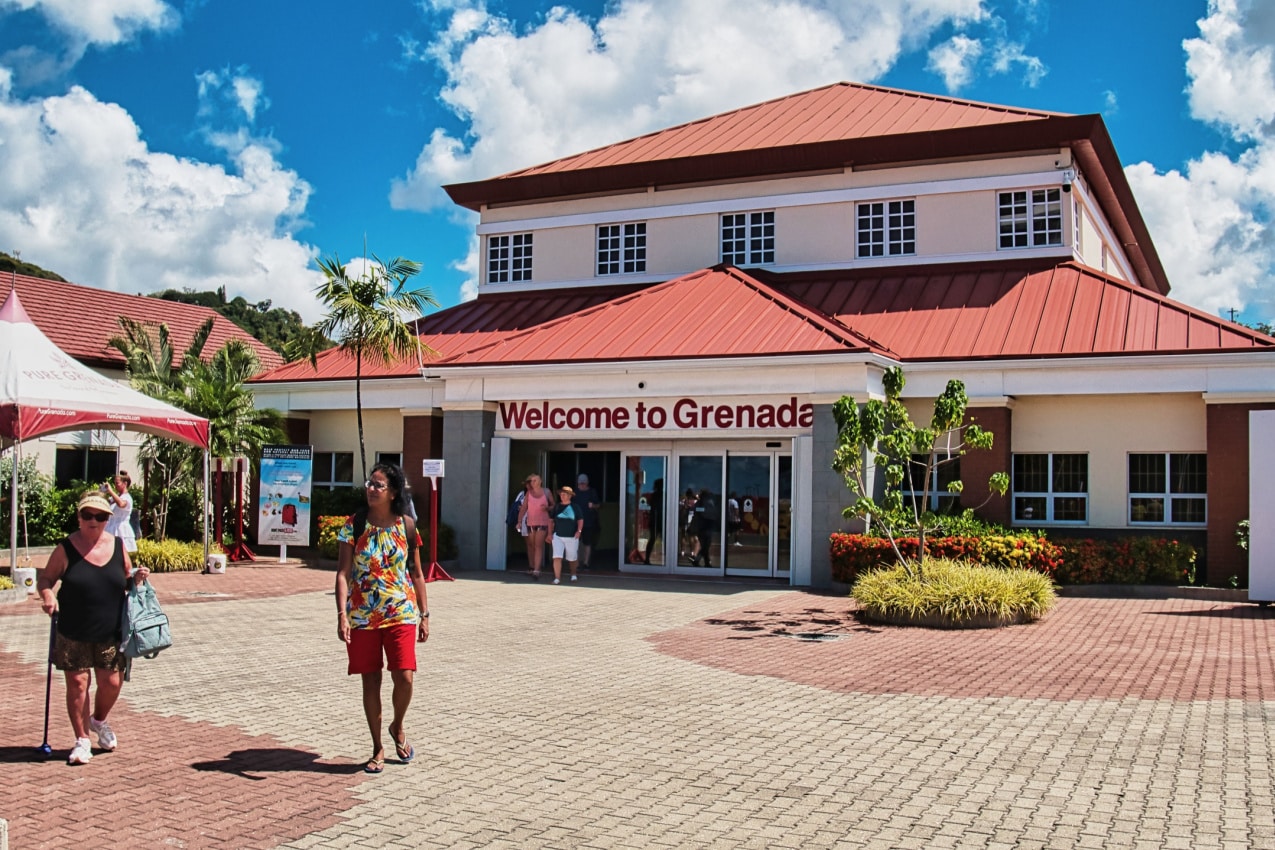
Grenada is a generally safe destination for solo explorers. It’s renowned for its friendly, welcoming locals and supportive police force.
Saint George’s, the capital, boasts a high safety rating for strolling alone both during the day and night. Still, stick to well-lit and populated streets, and if you’re unsure about the area, consider taking a taxi. You’ll find most Grenadians are super respectful, especially towards women. Still, dressing modestly is a good idea to avoid any unwanted attention like the occasional catcalling, which is even more uncomfortable when you’re traveling alone.
Crime rates on the island nation are pretty low, so you shouldn’t feel in danger as a solo traveler. But if you ever feel uneasy, the police are there to help. All in all, feel free to embrace the solo adventure, but be careful about your surroundings (especially at night), respect the local culture, and don’t let go of common sense.
Perils of Nature: The Risk of Natural Disasters in Grenada
The primary types of natural disasters that can affect Grenada are hurricanes, earthquakes, tropical storms, landslides, and volcanic activity.
Hurricanes
Grenada has about 4 hurricanes a year. The good news is that they often don’t directly hit Grenada. Usually, they decide to take a turn northward before reaching the island nation, leaving behind some gusts of wind and rain.
The most recent hurricane was Tammy, lasting from October 10 to October 29, 2023. Luckily for Grenada, it didn’t make a direct hit but got pretty close on October 20, about 83.8 miles (135 kilometers) northwest of Hillsborough in Carriacou and Petite Martinique.
The most intense hurricane was Bret on June 22, 2023. It hit with winds reaching up to 63.3mph (102 km/h) and a diameter of 45.9 miles (74 kilometers). According to the Saffir-Simpson scale, it was considered a tropical storm hurricane.
The good thing about hurricanes is they don’t just sneak up on you like earthquakes or landslides. Some take a few days to make landfall, giving people enough time to evacuate and take the necessary precautions. Stay safe and keep an eye on the weather updates!
Earthquakes
Grenada experiences around 22 earthquakes every year. Roughly, that’s one shake every fifteen days.
The latest earthquake hit Grenada on December 9, 2023, with a magnitude of 3.4. It happened 181 miles (292 kilometers) north-northeast of Saint George’s, about 39 miles (63 kilometers) deep.
The most powerful quake in the last decade hit on Aug 21, 2018, with a magnitude of 7.3. It struck 118 miles (190 kilometers) southwest of Saint George’s, at a depth of 91.3 miles (147 kilometers).
Thankfully, big, destructive earthquakes are rare and unlikely to happen during your short visit to Grenada. Just in case, it’s good to be prepared. If you’re indoors when an earthquake happens, drop to the ground, take cover under something sturdy, and hold on until the shaking stops. If you’re outside, find a clear spot away from buildings and trees, and remember to drop, cover, and hold on.
Landslides
Grenada is no stranger to landslides, especially after heavy rainfall, earthquakes, or volcanic eruptions. The most recent landslide shook the northern part of the main island on December 19, 2023. It was triggered by heavy rain.
Landslides can be quite unpredictable, but they tend to happen more in areas that already have a history of landslides or areas that have been recently hit by heavy rains. So, do a bit of research on the geological features of the area you’re planning to visit and opt for a hotel that’s situated in a safe spot, away from steep slopes. If you’re out hiking, check the weather forecasts for any possibility of heavy rainfall, and stick to marked trails!
Volcanic Activity
Grenada has two volcanoes: Kick ‘Em Jenny and Mount Saint Catherine.
Kick ‘Em Jenny is an underwater volcano. The most recent eruption occurred in April 2017, and an instrumentally recorded unrest period in 2018.
Mount Saint Catherine is a stratovolcano and the highest mountain in Grenada, situated in St. Mark’s, Victoria. Thankfully, the Global Volcanism Program hasn’t recorded any eruptions in the past 10,000 years.
Experiencing a volcanic eruption in Grenada may be one of the rarest things that could happen to you during your vacation. However, if it did, you’ll be well informed of the situation. Remember, if the eruption reaches Level 5, it’s time to evacuate.
Beware the Silent Threat: Carbon Monoxide Poisoning in Grenada
You might not be aware, but carbon monoxide poisoning is a real concern for hotels and motels. A study from 2005 to 2018 revealed 905 cases of CO poisoning in the U.S., leading to 22 fatalities.
This happens abroad as well. Three guests in a Mexico City Airbnb and another group at a Sandals Resort in the Bahamas tragically lost their lives to this toxic gas. Grenada hasn’t faced such incidents with tourists, but there was a case of a father and son passing away from suspected carbon monoxide poisoning in 2020 during home renovations.
Carbon monoxide (CO) is a sneaky danger—it’s colorless and odorless, produced when fossil fuels burn incompletely. For example, if your hotel has a faulty appliance, like a stove, water heater, or heating system, the gas can leak into your room. You won’t realize you’ve inhaled the gas until symptoms begin to show, like headaches, vomiting, nausea, or, in severe cases, paralysis or loss of life.
The good news is that CO poisoning is preventable with a simple device—a CO detector. Many rentals are already aware of the risks and equip their rooms with devices that blare an alarm if dangerous CO levels are detected. However, when you travel, you can’t always count on the room having one. For added safety, consider carrying a portable CO detector.
Serenity by the Shore: The Safety of Grenada Beaches
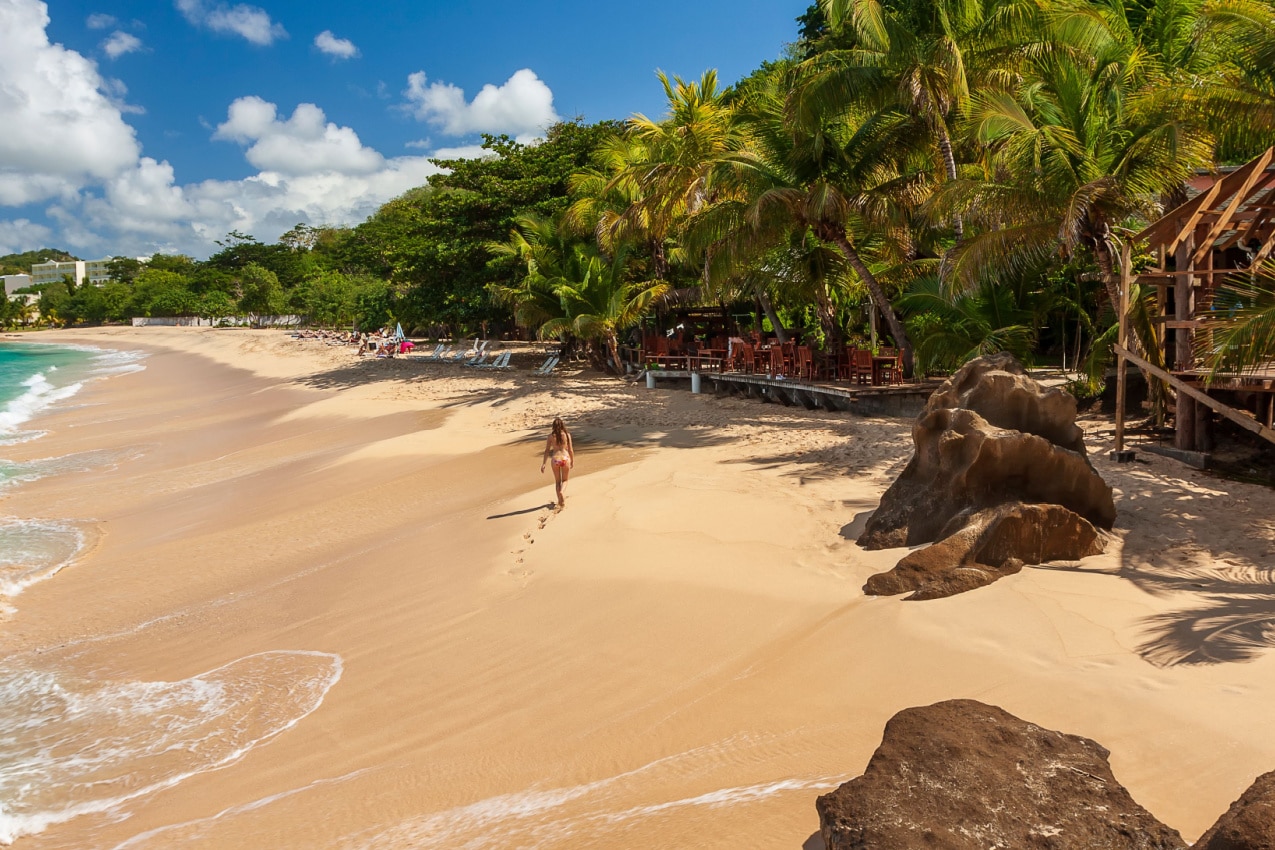
Grenada’s prime allure, much like the rest of the Caribbean, lies in its spectacular beaches.
Grenada’s beaches are generally safe. The popular ones are equipped with lifeguards, but as per the United Kingdom’s travel advisory: exercise caution due to the common riptides in the region.
Refer to these beach flags to learn whether it’s safe to swim:
- Red Flag: High surf, life-threatening currents—Do not swim
- Yellow Flag: Potential high surf or risky currents—Swim with caution
- Green Flag: Safe for swimming
- Purple Flag: Dangerous ocean animals like sharks, jellyfish, or sea urchins—Swim with extreme caution
- Blue Flag: The beach is awarded with eco-label for the best water quality, environmental care, and safety
The most popular beach, Grande Anse, has two miles of white sand, lifeguards, shaded areas, and a range of amenities, making it your safest bet.
The nearby BBC Beach is smaller but equally picturesque as Grande Anse. Sagesse offers great waves for watersports and a more private ambiance. Levera Beach is a must-see for bird-watching and turtle nesting sites. Magazine Beach is ideal for snorkeling. Speaking of snorkeling, don’t miss the Underwater Sculpture Park near Molinere Bay on the west coast.
Before visiting these beach gems, don’t forget the usual beach tips—wear sunscreen, keep an eye on your kids, and don’t leave valuables unattended on a beach towel.
Grenada Weather Patterns: What to Expect
Grenada boasts a tropical climate, so it stays hot and humid throughout the year.
In the capital, St. George, the yearly average temperature hovers between 79°F and 82°F (26°C and 27.7°C). The hottest months, July to October, can reach up to 86°F (30°C), while the coldest months, January and February, dip to around 75°F (23.8°C), rarely going below 72°F (22.2°C) or above 88°F (31°C).
The sun-soaked, dry season in Saint George’s runs from December to April. January stands out with clear skies 46% of the time, and February sees the least rainfall at 0.4 inches (10 millimeters).
Conversely, the cloudy, wet season spans from May to November. October is the cloudiest month, with overcast skies 71% of the time. August takes the lead for the most rainy days in Saint George’s, averaging 17.6 days, while November sees the most rainfall at 4.7 inches (119 millimeters).
The official hurricane season runs from early June to late November, with the peak months being September and October.
The windier stretch lasts from mid-November to mid-July, with wind speeds surpassing 15.4 mph (24.7 km/h). February claims the title of the windiest month, boasting an average hourly speed of 17.7mp[h (28.4km/h). September, on the other hand, offers the calmest weather with an average speed of 13mph (20.9km/h).
For a dip in the beautiful Caribbean Sea, any day of year will do! However, Grenada’s waters are warmest from mid-August to November, with an average temperature above 83°F (28.3°C). September marks the peak water warmth, with an average of 84°F (28.8°C), while February sees the coolest water at around 80°F (26.6°C).
The hilly and mountainous interior of Grenada experiences an equatorial climate, with a bountiful annual rainfall of approximately 138 inches (3,500 millimeters) and slightly cooler temperatures.
Monthly Average Temperatures in Saint George’s
| Month | Fahrenheit (°F) | Celsius (°C) |
| January | 79 | 26 |
| February | 79 | 26 |
| March | 79 | 26 |
| April | 81 | 27.2 |
| May | 82 | 27.7 |
| June | 81 | 27.2 |
| July | 81 | 27.2 |
| August | 82 | 27.7 |
| September | 82 | 27.7 |
| October | 82 | 27.7 |
| November | 81 | 27.2 |
| December | 80 | 26.6 |
Source: WeatherSpark, 2024 data
When Is the Best Time to Visit Grenada?
The best time to visit Grenada is during the peak tourist season, from mid-December to mid-April. This period boasts minimal rainfall, maximizing the chances of a vacation filled with picture-perfect beach days and nature adventures.
But keep in mind that while the peak tourist season from mid-December to mid-April promises ideal weather, it also comes with a surge in tourists and higher hotel and flight rates. So, if you’re on a budget or simply prefer a quieter vacation away from the crowds, consider other options.
For less crowds and discounted rates, consider the June-to-October period, Grenada’s low season. Tourist numbers drop due to increased rainfall and a higher chance of hurricanes.
Just a heads up, though—July and August see a surge of tourists joining Grenada’s vibrant carnival celebrations. This may not be ideal if you’re aiming for a tranquil, crowd-free vacation.
If you are a tourist who likes a little bit of everything—fewer crowds, moderate rainfall, and enticing deals—consider visiting in November or May. These shoulder months mark the transition between the wet and dry seasons in Grenada, providing pleasant weather, attractive prices, and a balanced atmosphere — not too crowded, not too quiet.
How to Stay Safe in Grenada
- Plan your vacation wisely. Check out the Grenada Tourism Authority’s official website and get the inside scoop on attractions and events to make the most of your time.
- Choose a hotel with safety in mind: Book a room in a reputable hotel, with good customer reviews, and high security measures.
- Tap water is generally safe, but be cautious after storms. Use purification tablets or opt for boiling to ensure the water is safe to drink.
- Choose reputable restaurants that offer high-quality cuisine. The Grenada Lime & Dine (Google Play/Apple Store) is a great app with insights about restaurants, bars, and cafes across Grenada.
- Order food rather than go outside in the late hours. A great food delivery app that operates in Grenada is Caribeeats.
- Pick your cocktails wisely. Watch out for the local Pain Killer cocktail—it’s known to have a high ABV that may make you sick and very drunk.
- Harassment is very rare, but you may stumble upon catcallers. Simply ignore them so you won’t attract further attention.
- Keep your distance from the Manchineel tree. It’s highly poisonous.
- After a dip, throw on some clothes before strolling the streets. Walking in just swimwear isn’t the norm and could lead to fines as well as unwanted attention.
- Grenada has a strict “no camouflage” rule. Avoid wearing camouflage attire, as it’s reserved for the armed forces. Breaking this rule may result in fines and confiscation of your camouflage items.
- Consider a GPS app like MAPS.ME. It’s an offline map and navigation tool, perfect for exploring Grenada without the need for an internet connection.
Emergency Numbers
- Police: 911
- Marine: 1 (473) 444-1931
- Ambulance: 434
- Fire Station: 1 (473) 440-2112 / 911
- Coast Guard: 1 (473) 444-1931 / 399
Time to Pack Your Bags!
When exploring Grenada, keep your wits about you just as you would anywhere else.
A few reminders before you pack your bags:
- Carefully choose your accommodation—find a place with good security.
- Hop from one place to another with licensed taxis—but agree on the fare beforehand.
- If you opt to walk, make sure you don’t do it in the middle of the night, especially in less populated areas or isolated beaches.
- When attending festivals or other public gatherings, don’t carry all your valuables with you. Instead, securely store them in your hotel’s safe.
With a bit of street smarts and common sense, you’re all set for a safe, enjoyable, and spicy experience in Grenada.
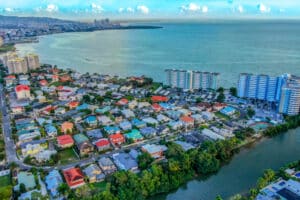
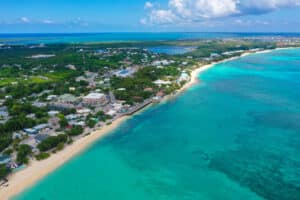
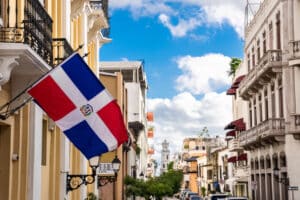
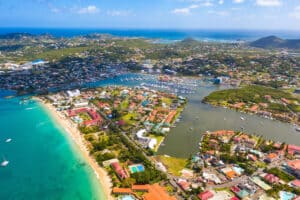
The story “Tragic Shooting on North College Street (January 24, 2024)” is not related to our Country, Grenada in the Caribbean, kindly fix it as this is misleading
Thank you, Nazim. Apologies for this oversight and we have now fixed this.
Thank you